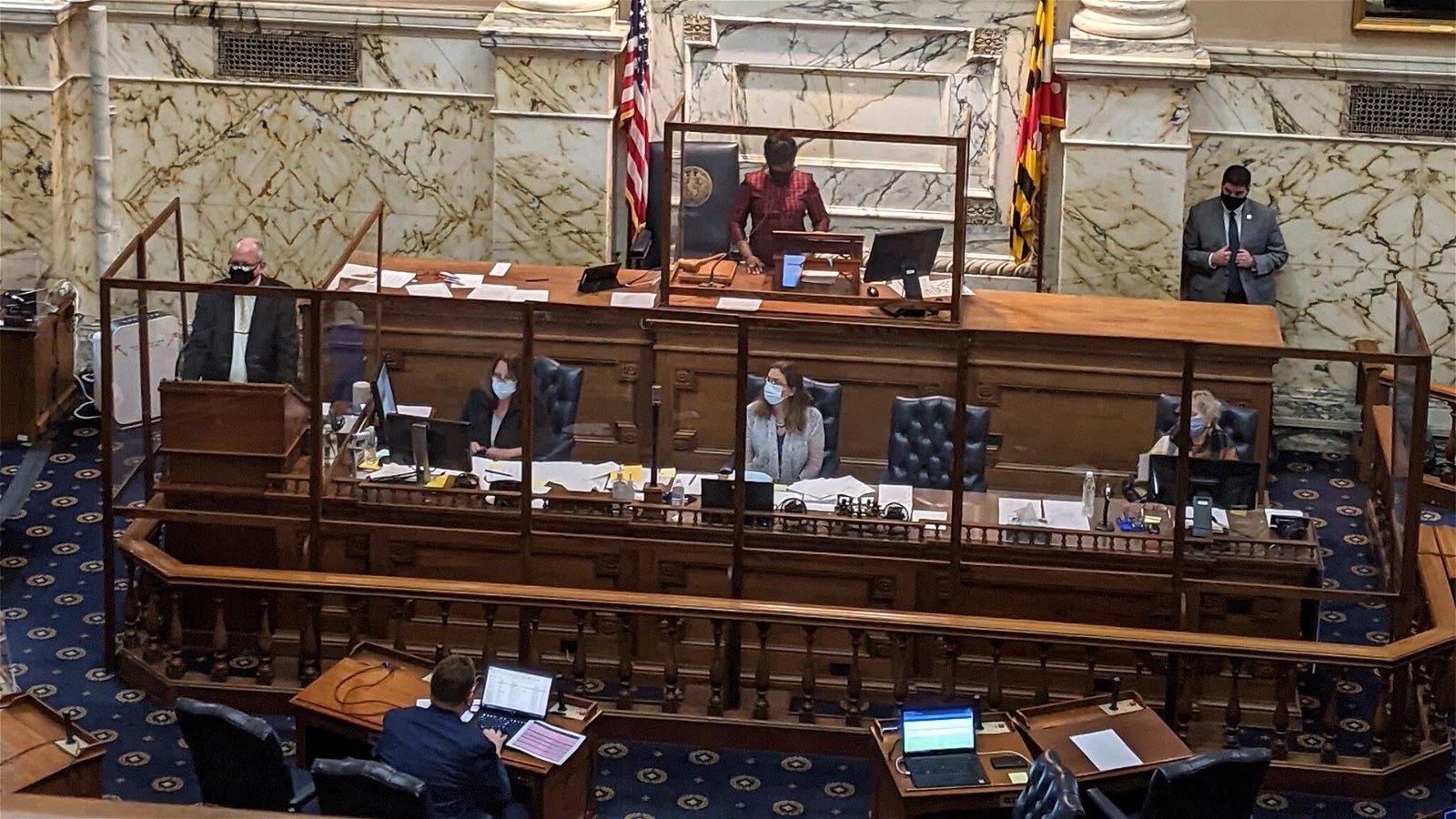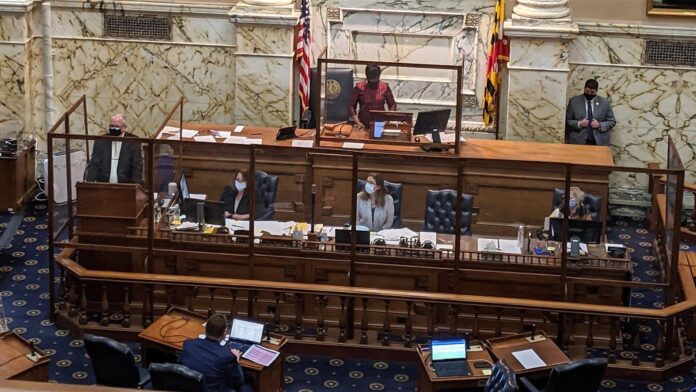The Maryland Senate had its first hearing on Wednesday for a bill that would allow for the removal of certain restrictions to gambling statewide. In November 2024, voters will decide whether to legalize online gaming, such as virtual table games or slot machines.
SB0267 is sponsored by Sen. Ron Watson, D-Prince George’s, and Senate Majority Leader Nancy J. King, D-Montgomery, and seeks to expand the gambling options that the General Assembly has approved in recent years, including sports betting that began in November. Currently, table gaming is limited to the premises of Maryland’s casinos. Funds generated for the state from the expansion would be used for education, particularly the Blueprint for Maryland’s Future, an education reform initiative.
“We are missing one vital component with respect to gaming and that’s the fourth leg of the casino tool, which is (internet) gaming. The fundamental aspect of this bill, is it creates a new funding stream for education, and I have deep concerns that we need to do what we can to support our Blueprint,” said Watson, as reported by the Southern Maryland Chronicle.
“I am grateful for the efforts to fund the Blueprint, but we have all seen and been briefed that we have some significant challenges to meet in the out years. According to the Comptroller’s Office and detailed in the fiscal note, as much as $97 million could be generated by fiscal year 2028,” he added.
Under the proposed bill, businesses could submit applications for online gaming permits which will cost $500,000 and last for five years. Organizations with a license will keep the majority of profits from virtual gaming (85%), with the remainder of income allocated to the Education Trust Fund.
This fund is used to finance the Blueprint for Maryland’s Future Fund, a 10-year plan for the state’s public education system that was passed in 2021. It expands access to early childhood education, provides more preparation for college and career readiness, increases the standards and diversity of school staff, and generally provides more resources aimed at student success.

According to Gov. Wes Moore’s budget, there is enough budgeted money to sustain the Blueprint through FY 2026, which is when the projected revenue from SB0267 could help fill in.
As of FY 2024, including Moore’s allocation of $500 million from the General Fund, the Blueprint fund contains $2.2 billion. By 2026, the fund’s balance will decrease to $253 million before becoming a $1.4 billion deficit in FY 2027.
“The projections show that we have (Blueprint for Maryland’s Future) funding for the first few years, but then that funding falls off, and we have to be very open-minded and find new sources of revenue. This is one of those,” Watson said, according to the above-mentioned media. “I think we’ve gotten past that sensitive spot of ‘Should we or Shouldn’t we do this?’ Now, it’s all about how can we capitalize on it? How can we use it to generate Black wealth, if that’s possible? How can we make more wealth in our state?”
The state gaming authority estimates that online gambling could generate as much as $72 million a year for education from its 15% stake, according to the bill’s fiscal note. However, legislative analysts said that it’s hard to estimate the financial impact using figures from surrounding states, given their variability and that in-person gambling and lottery sales could decline with the advent of online gaming.
Some are skeptical about the benefits of a gaming expansion. Stop Predatory Gambling & Campaign for Gambling-Free Kids told Capital News Service that Marylanders lost $3 billion of personal wealth in FY 2022 to state-government-run commercialized gambling, and, since casinos first opened in Maryland in 2010, citizens have lost $23 billion, the group said.
There are other gaming issues before lawmakers this year, but they are largely tweaks to existing laws, including bills to adjust the number of machines that bingo parlors may operate and a proposal to allow senior centers in St. Mary’s County to host gaming.
Del. Matt Morgan
The latter bill, HB0263, sponsored by Del. Matt Morgan, R-St. Mary’s, allows senior activity centers in St. Mary’s County to conduct games, such as small-stakes poker or pitch, where participants can wager small sums of money. This legislation limits entry fees to $25 and a maximum of $50 per session while specifying that leftover prize money is used to fund future senior center programming and general gaming in the county.
Morgan also acknowledged that the recent expansion of gambling in the state means that the legislature must be attentive yet patient in addressing the nuances of implementation.
“We got on gaming a little late, comparable to our neighboring states. It came a few years later with slots and table gaming, and now we have sports betting,” Morgan said, as The Southern Maryland Chronicle reported. “We just made a lot of changes over a short amount of time. Sports betting just came recently so you kind of need to see how this stuff plays out before you start making changes to it.”
Original article: https://www.yogonet.com/international/news/2023/02/20/66167-maryland-senate-analyzes-bill-that-seeks-to-legalize-online-gaming















